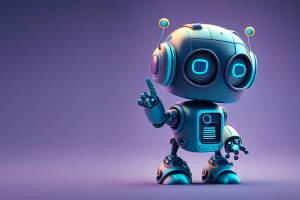In today’s world, the presence of robots and AI in our homes and workplaces is becoming as commonplace as the gadgets in our pockets. Take the Roomba, for instance. Many American households now welcome this little robotic vacuum into the family. Powered by machine learning technology, the Roomba can detect patterns in your home, learning where to clean—much like how we develop habits in our daily lives. It’s no surprise that these bots handle the mundane task of keeping our floors spotless.
But while we may enjoy the convenience of our robot vacuums, their larger counterparts are making waves in industries, especially in blue-collar sectors. Machines that operate on a larger scale are automating tasks that were once done by hand. In fact, back in the summer of 2018, I worked in a fulfillment warehouse, wrapping pallets in plastic. When I returned to the same job after college, I found that a robot had taken over the gig.
These pallet-wrapping robots, just like the Roomba, rely on machine learning and sensors to perform tasks efficiently. And they’re not the only ones—automated palletization, mowbots, and cleaning bots in grocery stores are now routine across the country.
Yet, the rise of automation raises a critical question: Are these bots helping us, or are they slowly taking over our jobs? Dr. Daniel De Haan, a research fellow at Oxford, warns that AI and automation could displace workers across various sectors, from manual labor to medicine and even legal work. For some, the idea of automation is a relief—“The robot handles the tedious part of my job.” But for others, it’s worrying—“The robot has replaced me.”
At its core, AI and automation are tools. Powerful tools, yes—perhaps the most powerful since the invention of language, as De Haan suggests—but still just tools. The real challenge lies in how we use them. As these technologies continue to advance, the question of how we balance their potential benefits with their impact on human jobs becomes a key ethical consideration.
In today’s hyper-digital world, AI chatbots are the rockstars of online business! They never clock out, handle a ton of customer queries at once, and speak multiple languages without breaking a sweat. From e-commerce to healthcare to finance, companies are jumping on the chatbot bandwagon because they supercharge the user experience and keep things running smooth 24/7.


Take a chance on automation platforms
With cutting-edge tools like Kortical’s chatbot development platform, businesses can build chatbots that don’t just chat—they *work*! Think personal shopping assistants for Shopify or sales-focused customer support that’s always closing deals. These bots don’t just engage customers—they gather golden insights into customer behavior, powering next-level marketing strategies.
AI Agents, dressed up as chatbots, are even taking on full-blown job roles. Curious about how these AI powerhouses are transforming work? Check out this video to dive deeper into how AI is automating the future!



